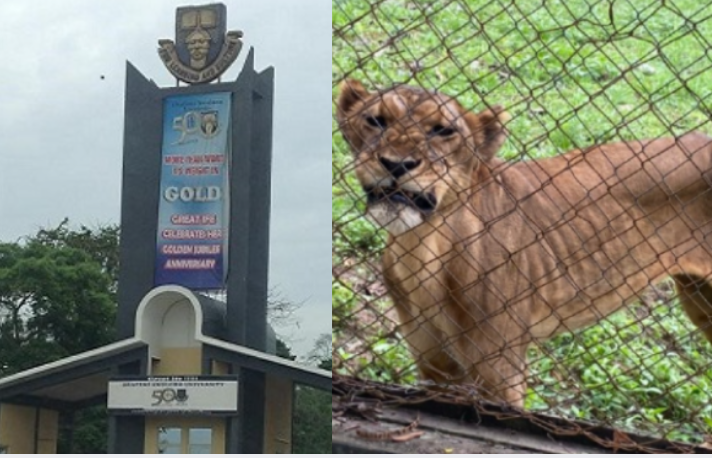The recent tragic incident at the Obafemi Awolowo University (OAU) involving the death of Mr. Olabode Olawuyi, a veteran staff member mauled by a lion, not only shook the nation but also brought to light significant issues within Nigeria’s wildlife conservation efforts.
Established in 1974, the OAU zoological garden stands as one of Nigeria’s oldest and largest, boasting a diverse array of over 300 animals, including lions, leopards, and crocodiles. Despite its significance in research, education, and conservation, the recent lion attack has underscored glaring inadequacies in both its management and security, echoing broader challenges within Nigeria’s wildlife conservation landscape.
The lion involved in the attack was born on campus in 2015 as part of a breeding program aimed at preserving the endangered species. Named OAU, it represented strength and pride for the university community. However, the reasons behind the lion’s aggression remain unclear, with potential triggers ranging from stress and hunger to territoriality or illness. Captive lions, experts note, may experience psychological distress, leading to unpredictable behavior.
The repercussions of the attack extend beyond the loss of Mr. Olawuyi and the euthanasia of the lion. They highlight the precarious state of lion populations in Nigeria and Africa, classified as vulnerable by the International Union for Conservation of Nature (IUCN). With only an estimated 20,000 individuals remaining in the wild, the decline in lion populations is attributed to various factors, including habitat loss, human-wildlife conflict, and poaching.
The OAU incident serves as a wake-up call for authorities to bolster security measures within zoological gardens, ensure proper animal welfare, and educate staff and the public on wildlife interaction risks. Recommendations include implementing electric fences, surveillance systems, and emergency protocols while providing nutritious food, veterinary care, and staff training.
Moreover, the incident underscores the imperative of supporting wildlife conservation efforts in Nigeria, crucial for biodiversity preservation and ecological equilibrium. Conservation goes beyond preventing extinction; it entails fostering respectful human-animal relationships based on understanding and appreciation.
While the OAU community mourns the loss of a colleague and a cherished animal, it must use this tragedy as a catalyst for introspection and improvement. Honoring the memory of Mr. Olabode Olawuyi and the lion entails a commitment to advancing knowledge and conservation efforts, ensuring tragedies like these become lessons learned rather than repeated mistakes.

